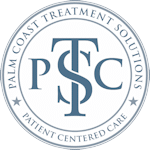Popular Post
Jump to Section
Almost everyone knows about post-traumatic stress disorder (PTSD), but few have heard of complex PTSD, often known as C-PTSD. Long-term or sustained trauma causes complex PTSD. Individuals with C-PTSD exhibit core symptoms of PTSD, such as reexperiencing, hyperarousal, and avoidance, as well as other symptoms. These symptoms can be alleviated by complex PTSD treatment clinics.
PTSD was initially thought to be a disease that only affected soldiers, but it is now accepted that anyone who witnesses a horrific event can develop PTSD. Some physicians differentiate between PTSD and C-PTSD when the trauma is repeated and sustained.
However, it should be emphasized that the DSM-5, which is used by mental health professionals to diagnose mental health disorders, does not recognize complex PTSD as a separate condition.
We, as experienced mental health specialists, understand the issues that people suffering from complicated PTSD encounter and have developed programs and services to assist them. Contact us at (386) 284-4151 to learn more about our PTSD treatment clinic.
Comparison of PTSD and Complex PTSD
Both complex PTSD and PTSD are mental health illnesses triggered by traumatic situations. Both diseases can result in flashbacks, nightmares, and sleep disruptions. Furthermore, even after the danger has passed, people can feel insecure and terrified. The fundamental distinction between the two illnesses is the frequency of the trauma.
PTSD is produced by a single traumatic event, whereas complex PTSD is caused by long-term trauma that is repeated or continues for an extended length of time. This is called complicated trauma.
Unlike PTSD, which can occur at any age, complex PTSD is frequently the outcome of early age trauma. The psychological and developmental consequences of complex trauma are greater than those of a single traumatic experience. As a result, many mental health practitioners think that a diagnosis
Symptoms of Complex PTSD
People who have been through a stressful situation generally feel the repercussions for several days. You may have PTSD if your symptoms continue for weeks or longer and interfere with your ability to function.
PTSD symptoms are classified into three types:
- Re-experiencing symptoms: Trauma memories can elicit strong emotions. Individuals may revisit images, sounds, or odors linked with the trauma, as well as experience flashbacks and nightmares.
- Hyperarousal symptoms include feeling hypervigilant, jumpy, easily startled, and always on guard.
- Individuals spend a lot of energy avoiding triggers that remind them of their trauma, such as people, places, and things. To avoid their thoughts and feelings, they may self-medicate with drugs or alcohol.
Individuals with complex PTSD may experience additional symptoms in addition to the core PTSD symptoms, such as:
- Controlling emotions is difficult. Excessive rage, chronic unhappiness, depression, and suicidal ideation are all prevalent.
- Helplessness, humiliation, and remorse all lead to a low sense of self-worth.
- Relationship issues: A lack of trust can cause problems in partnerships.
- Detachment is defined as a disconnection from oneself or one’s surroundings.
- Loss of a meaning system: Loss of essential ideas and ideals, as well as hope in the world or other people
Complex PTSD is frequently misdiagnosed as a borderline personality disorder. Complex PTSD is a newer phrase used by therapists to more accurately define the symptoms that emerge as a result of long-term trauma exposure.
Find the Best Complex PTSD Treatment Facilities in Palm Coast, FL
If you or a loved one is suffering from complicated PTSD, you must choose the best treatment center for your needs. Here are some things to think about when looking for a difficult PTSD treatment center:

Complex PTSD specialization: Look for a treatment institution that specifically identifies complex PTSD as one of the illnesses it treats. This demonstrates their knowledge and ability to deal with this type of trauma.
Evidence-based therapy: Check to see if the treatment center uses evidence-based therapies like Cognitive Behavioral Therapy (CBT) or Eye Movement Desensitization and Reprocessing (EMDR).
Customized treatment plans: Because each person’s experience with complex PTSD is unique, finding a treatment center that offers personalized treatment programs tailored to your specific needs is critical.
Trauma-informed care entails the treatment center’s staff being trained in understanding and treating trauma and its effects on individuals.
Support for co-occurring illnesses: Many people suffering from complex PTSD also have other mental health issues, such as depression or substance addiction. Look for a treatment center that can treat these co-occurring illnesses at the same time.
Finally, the most complicated PTSD treatment center would provide compassionate and comprehensive care to assist patients in healing from their trauma.
Treatment of Complex PTSD
Although more study is needed to determine the best way to treat complicated PTSD, the therapies now in use to treat PTSD are successful, including:
- To process the trauma, talk therapy is used.
- EMDR stands for eye movement desensitization and reprocessing therapy.
- To address mental patterns, cognitive-behavioral therapy (CBT) is used.
- Exposure therapy is used to confront trauma in a safe environment.
- Trauma-informed care.
Because treatment for complicated PTSD takes time, training in coping skills to manage symptoms should also be included. It is also critical to have a solid support network. Some of the risk factors for complicated PTSD are as follows:
- Trauma at an early age.
- Abuse by a close relative or friend.
- Long-term domestic abuse.
- Several traumas.
- Kidnapping, enslavement, torture, or trafficking.
- Having witnessed several acts of violence.
For Complex PTSD Treatment, Contact Palm Coast Treatment Solutions.
The PTSD treatment program at Palm Coast Treatment Solutions employs evidence-based strategies that have been demonstrated to be effective in treating PTSD. We offer holistic therapies that address the whole person. If you or a loved one is suffering from the effects of untreated complex PTSD, our trauma therapy and PTSD treatment programs can assist you in finding recovery. Call now at (386) 284-4151.
Contact Us
CALL US NOW
Palm Coast Treatment Centers will iron out the details for you in a manner that will make you confident in your path to sobriety. That first simple call is your ticket to making Palm Coast Treatment Centers your solution for addiction. Get the freedom from addiction that you deserve today.
Call Us Now: (386) 284-4151Updated News
LATEST POSTS
Palm Coast Recovery Solutions makes numerous media outlets available to encourage you in your recovery process. Digital media literature is approved by a licensed professional and intended to guide you in your recovery path.

Years of experience
Our leadership team has extensive experience in dual-diagnosis treatment and is ready to help those who are struggling with substance use and mental health.

Specialists
Our staff consists of many licensed addiction and mental health treatment facilitators and other staff who are ready to share their experience and their success.

Happy patients
Palm Coast Treatment Centers has helped over 2,000 people who have struggled with substance use and mental health to find road to recovery.
Contact Us
GET IN TOUCH
Reaching out to Palm Coast Treatment Centers may be the most important call of your recovery process. A caring professional is waiting for your call to be your guide to addiction-free living.
Need Help? Contact Us
Areas and Cities We Serve SUD & Mental Health Treatments in Florida
OviedoOrlandoDelandJacksonvillePort St. LucieTampaAltamonte SpringsKissimmeeSt CloudWinter GardenWinter ParkClermontMelbourneSanfordDeltonaLake MaryMount DoraLeesburgThe VillagesUnion ParkSt. AugustineDupontPort OrangeOrmond BeachHolly HillDaytona BeachEdgewaterOak HillMaytownEldoraGenevaTitusvilleChristmasPort St. JohnPort CanaveralCocoa BeachOsteenSatellite BeachPalm BayRoselandSebastianFellsmereGiffordRockledge
 info@shc.health
info@shc.health 









